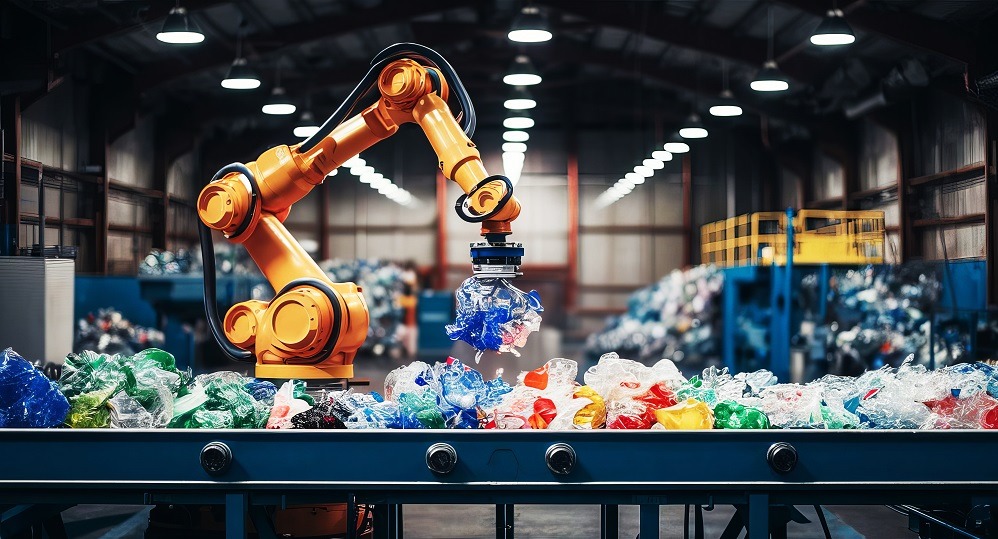AI-Based Material Sorting Robot For Plastic Recycling
KEY INFORMATION
Waste Management & Recycling - Automation & Productivity Enhancement Systems
TECHNOLOGY OVERVIEW
Plastic recycling plays a crucial role in achieving a sustainable future. Proper sorting of waste plastics is essential, especially in mixed waste streams where various materials are combined. Some types of plastic are not recyclable, and even recyclable ones can be difficult to separate efficiently. Sorting mixed waste streams into different recyclable categories can be time-consuming and labour-intensive, especially for materials with similar appearances, such as different types of plastic. To address these challenges, this technology aims to automate and accurately sort plastic waste, reducing the reliance on manual processing and improving overall plastic recycling efficiency.
The technology on offer is a patented artificial intelligence (AI) based material sorting robot that sorts plastic waste accurately. Comprising of a camera, recognition unit and analysis unit, each unit of this system can continuously identify and sort waste plastics and generate information in real time. Blower vacuum adsorption devices are placed within each unit to pick waste in a speedy and accurate manner. This technology effectively reduces the issue of labour shortage in the waste sector, lowers operating costs and contamination rates that hinders recycling efforts. Currently, the technology has been deployed successfully in South Korea to sort polyethylene terephthalate (PET), polyethylene (PE) and polypropylene (PP).
The technology owner is interested to work with Singapore waste collection companies on joint development projects to testbed this technology and improve plastic recycling rates.
TECHNOLOGY FEATURES & SPECIFICATIONS
This technology comprises of the following hardware and software components:
- Camera unit – for real time monitoring
- Recognition unit – for real time item detection and data collection
- Analysis unit – for analysis of the type, colour, contamination level, and presence or absence of lids and labels
- Conversion unit – for item selection and sorting
- AI-enabled dashboard
Key features of this AI-enabled material robot include:
- Sort rate of 96 pieces per minute
- 99.3% accuracy
- 7 types of waste
POTENTIAL APPLICATIONS
This technology has been validated for plastic waste sorting (PET, PE and PP) and can be expanded into sorting of other types of wastes such as paper, plastic vinyl films, aluminium, iron and textiles. Other potential applications include construction and marine waste.
Unique Value Proposition
- High recognition and sorting accuracy
- Improves waste sorting efficiency by 240% in terms of speed and 126% in terms of operation time
- Cost-effective solution for resource efficiency (279% reduction in sorting costs)

